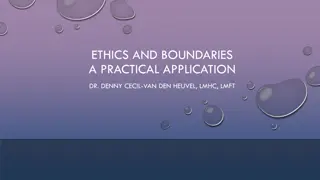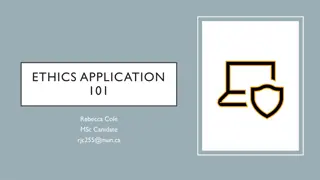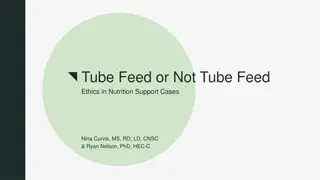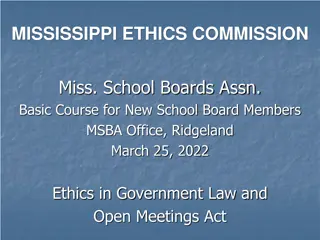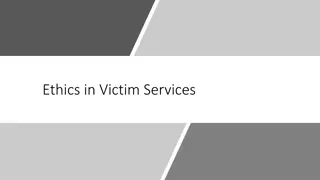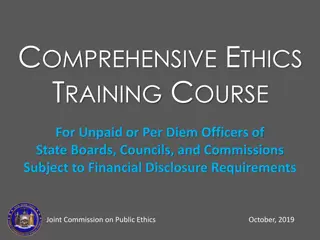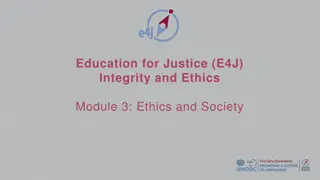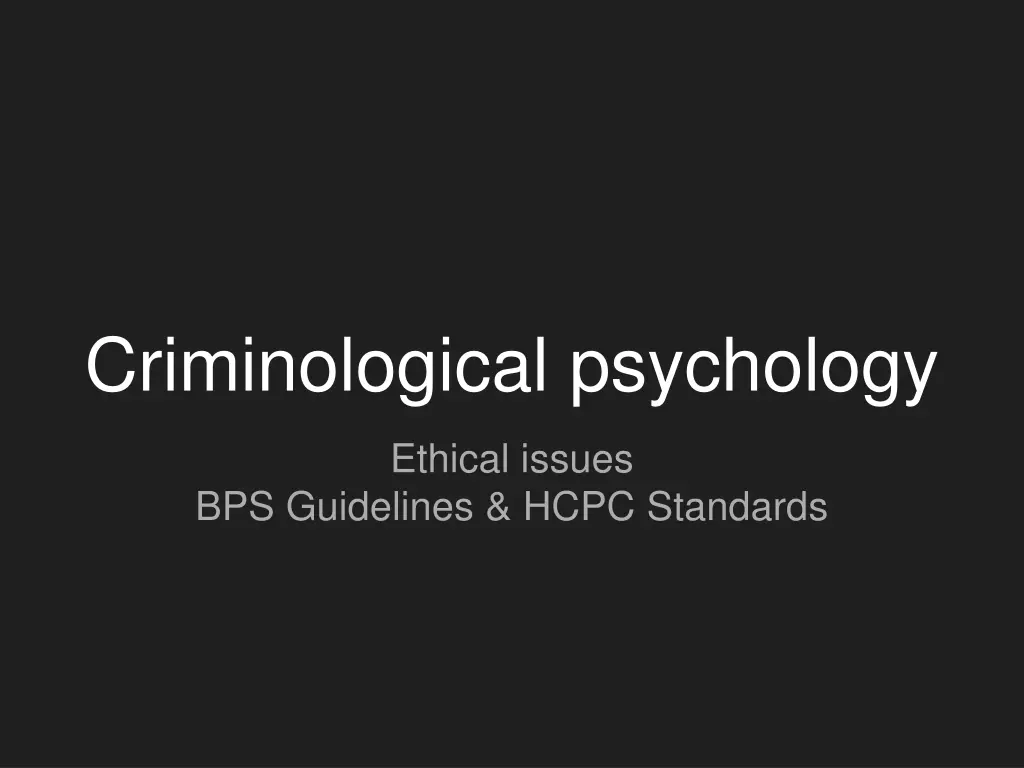
Criminological Psychology Ethical Guidelines and HCPC Standards
Explore the ethical issues, BPS guidelines, and HCPC standards in criminological psychology. Understand how these guidelines relate to professional practice, encompassing respect, competence, responsibility, and integrity. Discover the importance of regulation in psychology practice for protecting service users, practitioners, and the profession.
Download Presentation

Please find below an Image/Link to download the presentation.
The content on the website is provided AS IS for your information and personal use only. It may not be sold, licensed, or shared on other websites without obtaining consent from the author. If you encounter any issues during the download, it is possible that the publisher has removed the file from their server.
You are allowed to download the files provided on this website for personal or commercial use, subject to the condition that they are used lawfully. All files are the property of their respective owners.
The content on the website is provided AS IS for your information and personal use only. It may not be sold, licensed, or shared on other websites without obtaining consent from the author.
E N D
Presentation Transcript
Criminological psychology Ethical issues BPS Guidelines & HCPC Standards
Research Practice
BPS Guidelines How do BPS Guidelines relate to professional practice (as opposed to research)? psychlotron.org.uk
BPS Guidelines How do BPS Guidelines relate to professional practice (as opposed to research)? Respect (individual differences, privacy, confidentiality, informed consent) Competence (training & expertise; self-monitoring and reflection) Responsibility (avoiding harm) Integrity (boundaries; honesty; act on misconduct) psychlotron.org.uk
HCPC Standards of Proficiency be able to practise safely and effectively within their scope of practice be able to work appropriately with others be able to maintain records appropriately be able to practise within the legal and ethical boundaries of their profession be able to reflect on and review practice be able to assure the quality of their practice be able to maintain fitness to practise understand the key concepts of the knowledge base relevant to their profession be able to practise as an autonomous professional, exercising their own professional judgement be able to draw on appropriate knowledge and skills to inform practice be aware of the impact of culture, equality and diversity on practice understand the need to establish and maintain a safe practice environment be able to practise in a non-discriminatory manner understand the importance of and be able to maintain confidentiality
HCPC Misconduct Cases Which standards apply? What would be an appropriate sanction? psychlotron.org.uk
Evaluation Why does psychology practice require regulation? psychlotron.org.uk
Evaluation Why does psychology practice require regulation? Protect the service user Protection the practitioner Protect the profession psychlotron.org.uk
Exam Q Sally is a forensic psychologist. She has just accepted a position working in a prison. She will be assessing offenders suitability for various programmes and will running anger management courses in an individual and group basis. Explain how the HCPC guidelines could apply to a psychologist working with offenders. Refer to the context in your answer. (8 marks) psychlotron.org.uk

